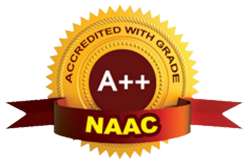Modern science is both positivistic and patriarchal in its origin. By making objectivity as the essential criterion of rationality, it excluded all other forms of knowledge including feminist knowledge from the definition of knowledge itself. Thus, feminists have critiqued it by underlying its masculinist worldview. They have offered another view of science which is theorized as standpoint theory. This view of science is inclusive and creates knowledge for all resulting in human flourishing. In recent years, women’s access to STEMM education has been debated in international platforms for Action, Agenda for Sustainable Development Goals, 2030. In India, feminist research studies have come up with recommendations to improve women’s participation in science. Gender-sensitive policies are being made to make science a more gender-inclusive discipline. With government agencies and many companies undertaking these initiatives, the field of gender and science has opened a whole new range of opportunities in research, policy-making bodies, international agencies and non-governmental organisations. CGSCI is an appropriate programme in ODL mode both in terms of content and its outreach. It provides a unique opportunity to research scholars, scientists, policy-makers and development professionals to critically engage with inter-disciplinary fields like gender and science. Keeping all this in view, the programme has been designed to provide a holistic understanding of gender and science by covering basic concepts of gender, science and technology, contemporary policies, STEMM education and implementation of programmes.
Programme Objectives
• To impart theoretical concepts of science from a feminist perspective;
• To enrich capacities of learners with regard to policies, programmes and schemes related to women and science.
• To enable learners to critically engage with societal-science approach in the area of science with special focus on climate change, renewable energy, industry, health, agriculture and ecology;
Who Can Take Admission?
• Professionals working at the middle-management and entry level in corporate sector
• Development professionals working in international agencies and government programmes
• Development functionaries working with civil-society organisations
• Faculty, scientist, researchers and students in universities, research organizations and colleges.
• Under-graduates students who intend to work on interdisciplinary projects.
Programme Coordinators:
Dr. Sunita Dhal, sunitadhall@ignou.ac.in, 011-29571619
Prof. Savita Singh, savitasingh@ignou.ac.in, 011-29571613



